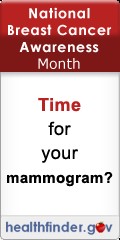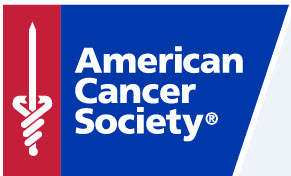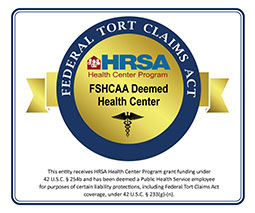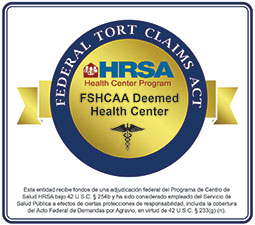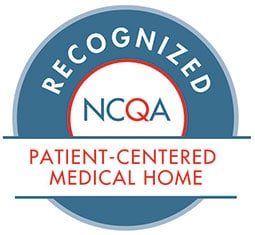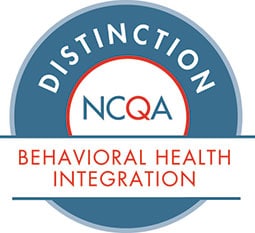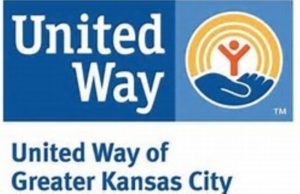Early Detection Saves Lives! Health Partnership Focuses on Screenings and Education
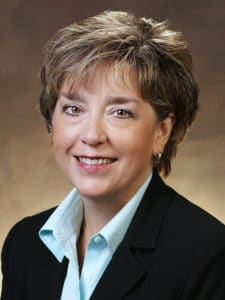
By Amy Falk, CEO of Health Partnership Clinic
Did you know that breast cancer is the most common cancer in American women, except for skin cancers?
It is according to the American Cancer Society (ACS).
Awareness surrounding breast cancer is incredibly important as early detection, often through screening, can catch the disease when it is most treatable. That’s the reason we partner with Diagnostic Imaging Centers to have onsite mammography for our patients and staff. Almost every month you will see the large coach in our Olathe parking lot.
Perla Cardenas, Women’s Health Coordinator, and our women’s health providers Patti West, DNP, APRN, and Eva Clark, MSN, APRN, WHNP-BC, as well as other providers schedule and/or refer patients to these lifesaving screening exams either on the mobile coach or at nearby hospitals, such as AdventHealth Shawnee Mission.
October is Breast Cancer Awareness Month
In October, we recognize Breast Cancer Awareness Month by promoting our mammography services as well as the importance of education.
This year, the first 100 women who receive a mammogram between Sunday, Oct. 1 and Thursday, Nov. 30 will receive a $25 Walmart gift card. The card will be mailed after the results are received.
The mammography coach will be on the Olathe campus on Friday, Oct. 6 and will be back on Friday, Nov. 3. You and your friends, family and neighbors are welcome to call 913-276-7098 to schedule a mammogram. Staff can also enroll eligible women in Kansas’ Early Detection Works for those who are low income and uninsured.
Think Pink Day – October 4th
At HPC, Perla, Catherine Rice, Marketing and Outreach Vice President, and Debbie Sparks, Development and Marketing Manager, have planned a Think Pink Day on Wednesday, Oct. 4 for our staff, volunteers and patients. A Word Search Puzzle contest is also being held! Health information and giveaways will be available at each of our clinic sites.
Lowering Your Risk for Breast Cancer
As a FQHC, we are always looking at prevention. Here’s how you can lower your risk for breast cancer:
- Keep a healthy weight and exercise regularly.
- Choose not to drink alcohol, or drink alcohol in moderation.
- If you are taking hormone replacement therapy or birth control pills, ask your doctor about the risks.
- Don’t smoke.
- Breastfeed your children, if possible.
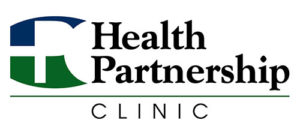
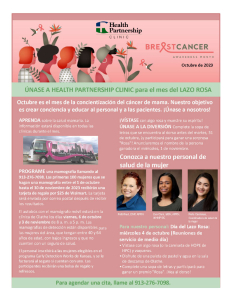
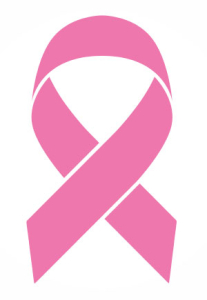 I always make time for my mammogram and remind my sister and girlfriends. I hope you do too! Remember early detection saves lives!
I always make time for my mammogram and remind my sister and girlfriends. I hope you do too! Remember early detection saves lives!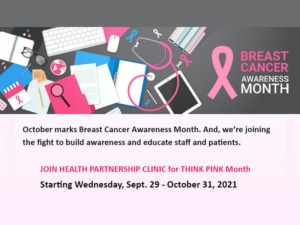 Nearly all of us have known someone with breast cancer and had our lives affected by that diagnosis. Breast cancer is something that affects all women and some men. Knowing your risk and getting the right screening test is important and can save your life.
Nearly all of us have known someone with breast cancer and had our lives affected by that diagnosis. Breast cancer is something that affects all women and some men. Knowing your risk and getting the right screening test is important and can save your life. Screening mammograms will be available to area women who are 50 and older, low income and uninsured. Clinic staff will enroll eligible women in Kansas’ Early Detection Works, and insurance will be billed, if insured. Thanks to FNBO, who donated funds for mammograms and awareness building initiatives, there is no cost to patients.
Screening mammograms will be available to area women who are 50 and older, low income and uninsured. Clinic staff will enroll eligible women in Kansas’ Early Detection Works, and insurance will be billed, if insured. Thanks to FNBO, who donated funds for mammograms and awareness building initiatives, there is no cost to patients.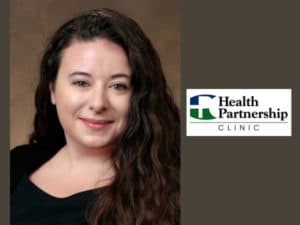
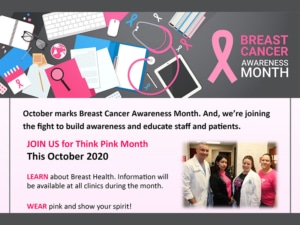

 Nearly all of us have known someone with breast cancer, and had our lives affected by that diagnosis. Breast cancer is something that affects all women and some men. Knowing your risk and getting the right screening test is important.
Nearly all of us have known someone with breast cancer, and had our lives affected by that diagnosis. Breast cancer is something that affects all women and some men. Knowing your risk and getting the right screening test is important. At HPC, we have help paying for screening mammograms for women age 40-64 years old. Call 1-877-277-1368 to see if you are eligible or look online at
At HPC, we have help paying for screening mammograms for women age 40-64 years old. Call 1-877-277-1368 to see if you are eligible or look online at  Post written by Catherine Rice, VP of Marketing and Outreach
Post written by Catherine Rice, VP of Marketing and Outreach HPC will host a
HPC will host a 